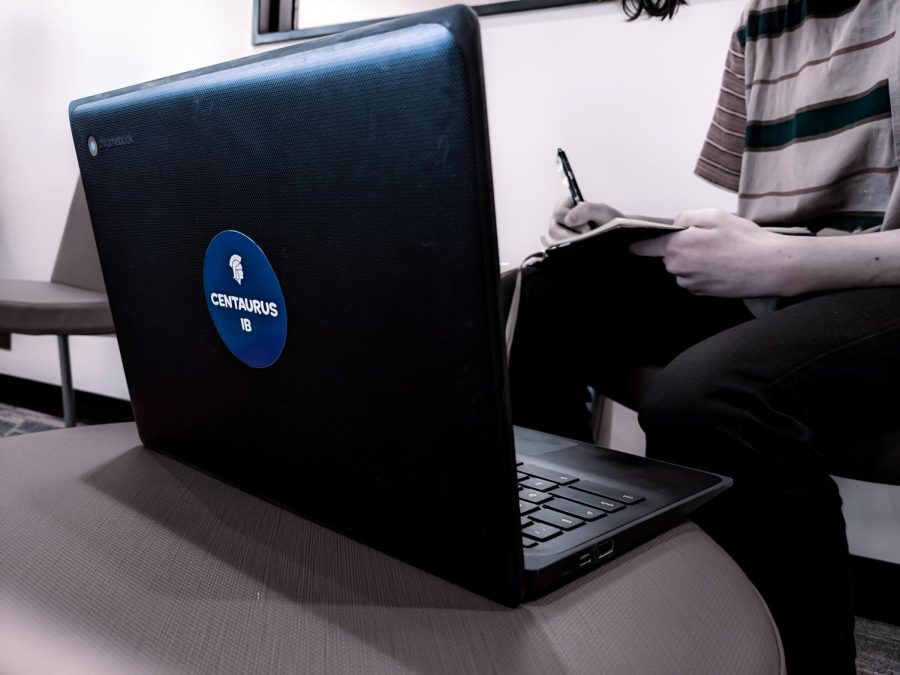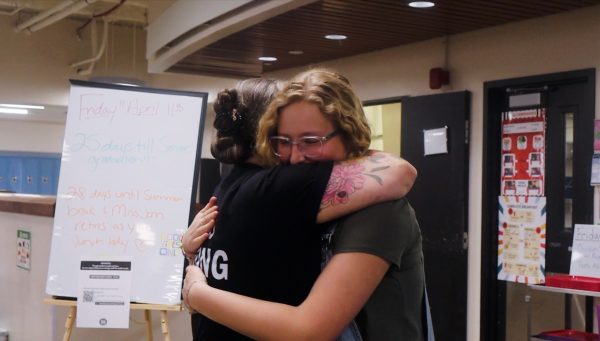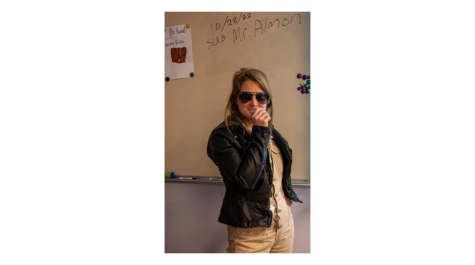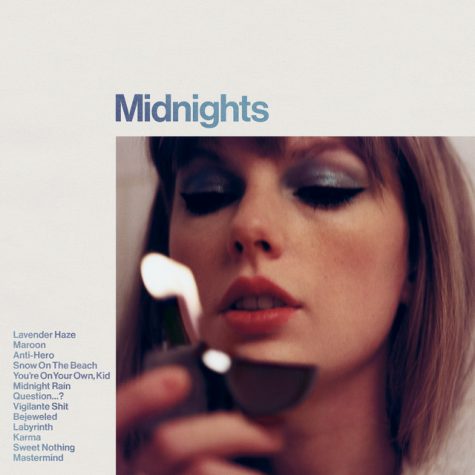Is IB For You?
Whether you’re new to advanced classes at Centaurus or know quite a bit, you might still want to know more about IB. International Baccalaureate is a nonprofit program founded to give the opportunity of a rigorous academic education. Centaurus takes a lot of pride in its IB program, but it’s hard to know if the program is for you. This article is to answer that question. Finn Feldman interviewed two different perspectives on the program to help you decide what path you want to take in highschool.
These interviews were modified for clarity’s sake.
The Positive Perspective:
Finn Feldman (Interviewer, he/him, Sophomore): How did you find out about International Baccalaureate (IB)?
Caleb Loewengart (Interviewee, he/him, Senior): I actually found out about IB in middle school when I was making my decision on where to go to high school. One of the biggest factors in that was looking at schools that had the IB program because I knew pretty early on I wanted to go into the program.
FF: Can you describe IB in a few sentences?
CL: IB is a community of creative thinkers and people who love to learn for the sake of learning. It really works towards fostering those skills and making them applicable in so many different subjects.
FF: Just speaking on the classroom, what are the differences between non-IB classes and IB classes in terms of teaching style?
CL: In an IB class, you can tell that the students are there because they want to learn. There is a lot more discussion, the classwork is a lot more writing based [as compared to AP and standard level classes] and a lot more hands-on. In IB, to some extent, the teachers are teaching to the test which is the same as AP, but they are also teaching you all these skills which are valuable beyond the classroom and beyond the test.
FF: Would you say that there’s a community built around IB?
CL: Definitely, you’re in a cohort. You have all your classes with the same people so you become really close with those people really quickly.
FF: Were there any parts of the program that surprised you?
CL: I think the biggest surprise were the IAs which are internal assessments. They happen over the course of the program. Instead of essays, you have long-term assignments that go towards your final grade.
FF: What sets IB apart?
CL: The program is driven by you. If you don’t work toward getting the work done then you’re not going to do well. It’s tailored to a specific learning style and that works for me. It’s great for a lot of people, but not necessarily for everyone.
FF: What would you say to someone who isn’t sure if they should do the program?
CL: I think if you are on the fence about it, you should definitely try it out! You can take the courses for a semester, and if it doesn’t work out for you, your counselor will let you drop the classes. All the teachers are amazing and are there to support you. However, don’t push yourself beyond your limit because then you’re not going to get the best experience in high school that you can.
FF: Expanding on what you just said, has IB prevented you in any way from having a “normal teenage life?”
CL: I don’t think so. There are some times when the workload can get to be a lot, especially in junior year. There’s a lot of things that can get overwhelming quickly, but I’m still involved in theater, which, honestly, takes up more time then IB. I hang out with my friends outside of school and I still am able to do all the things I want to do.
FF: Why did you choose IB?
CL: I chose IB because it works really well for my learning style. I love writing more than I like multiple choice. It teaches you not to look at every subject in a vacuum. It feels like an extension of all the things that I’ve been taught up to this point. You find the connections between subjects like math and art, science and history, etc. I believe the teachers in the IB program are some of the best in the school. They really know how to support their students.
FF: For those who are interested in the option of taking both AP and IB classes, would you recommend this?
CL: I think it’s a great idea. You get some of the benefits of IB like learning how to do in-depth research, however you wont get as much out of the program. When you do the full program, you get the IB diploma. The diploma is internationally recognized so if you are hoping to study abroad, I would push you towards IB. You may also miss out on classes that are only available to students in the program.
FF: Final question. Would you recommend the program to underclassmen thinking about going into IB?
CL: I would with the caveat that you have to know yourself as a learner. IB teaches you how to learn, but it requires that you come in with a certain skill and a certain yearning to learn. You have to know when it gets tough you’re not going to falter or fall under the pressure. I’m not going to lie, there is a considerable amount of pressure. If you are willing to take on the challenge, I think it can be really really rewarding.
FF: Thank you so much for your time.
The Negative Perspective:
Finn Feldman: How did you find out about IB?
Anonymous Graduate: I found out about the program through presentations given by the school. I also talked to several older friends who had done or were in IB.
FF: Can you describe IB in a sentence for me?
AG: IB is a writing based program that aims to create a well rounded student while providing academically challenging classes.
FF: What are the differences between non-IB classes and IB classes in terms of teaching style?
AG: IB focuses a lot more on critical thinking and writing. The teaching style is more prompting rather than telling, and teachers are more likely to answer questions by prompting more questions rather than giving direct answers. It is also a lot more open ended. Teachers are more likely to ask your opinion rather than telling you exactly what to do.
FF: Why did you choose IB?
AG: I chose IB because I wanted to be in an academically rigorous program and I really like to write. I thought I learned better in an IB classroom, and so I tried to pick the program that I thought would be the best fit for me.
FF: Was there anything that surprised you about the program?
AG: It was so much more work than I was expecting. I knew there would be a lot of homework, but I didn’t realize how much work I had to do outside of school. Every single IB class requires an IA, which is an essay on a different topic depending on the class. The IA takes several weeks of working on it in and out of class. I found myself overwhelmed all the time. It was surprisingly difficult to find a work-life balance because I always had so much work to do. I could barely stay in my clubs. I found myself losing sleep on some nights because I just couldn’t find enough time to fit everything in.
FF: Did IB prepare you for college?
AG: I think my freshman year of college is a lot easier so far than IB. It definitely prepared me for college in some ways. I have better time management and I know how to push through in high stress situations. IB made me very good at writing essays quickly and made me a better reader.
FF: Based on your experiences in IB, would you recommend the program to underclassmen thinking of going into IB?
AG: It depends on the student, but in general no. I would consider myself a very academically focused person who did very well in school, and I struggled a lot. It was a very high stress environment for me, and my mental health really suffered while in the program. Although it challenged me and gave me skills that I wouldn’t have gotten otherwise, I would have probably gotten more college credit and been an overall healthier person especially senior year if I had taken a mix of AP and IB. Taking every single class advanced and having to do so much work inside and outside of school was too much for me to take on, even for a very driven and focused student. This program definitely worked well for some people, and some people loved it, but for me it was too much of a stressful two years.
FF: Thank you so much.
Your donation will support the student journalists of Centaurus High School. Your contribution will allow us to purchase equipment and cover our annual website hosting costs.
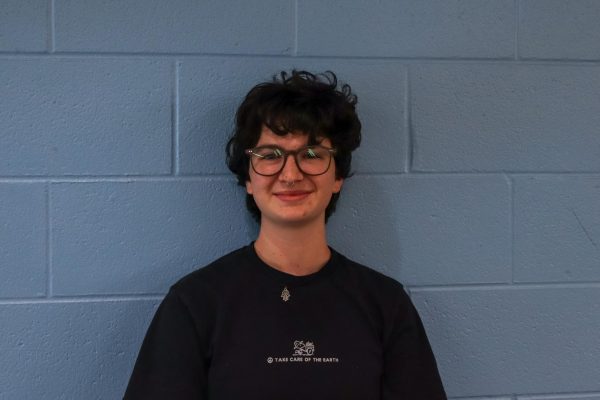
Finn Feldman (He/Him) is a senior at CHS and has been in the Warrior Scroll for three years now. Before becoming Co-Editor-in-Chief (with the amazing Sophie...




